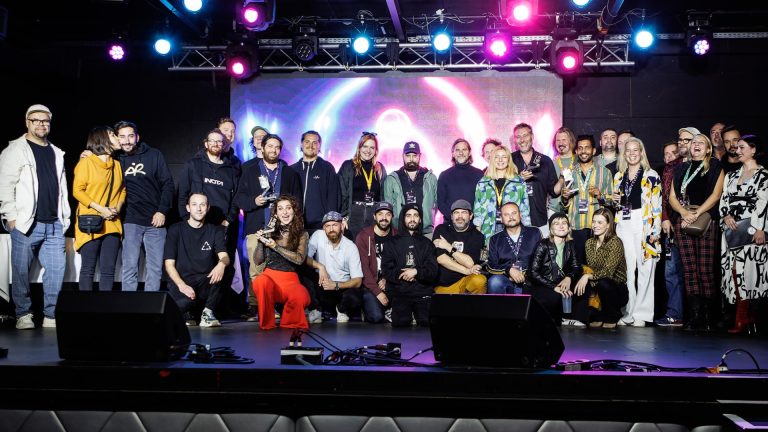The annual Music Hungary Conference & Showcase was held in Veszprém from 7 to 9 November, with the focus this year on AI and NT, i.e., Artificial Intelligence and Natural Intelligence in the music industry. The theme has been the subject of lectures and roundtable discussions that have sought to explore how the music industry can embrace and leverage technology.
Among the guests was György Kurtág Jr., who gave a presentation on the development of collective intelligence at the CEPI experimental workshop, and Gábor Varga, former head of technology strategy at Microsoft Hungary. In addition to music industry topics, there were colourful and multi-faceted programmes, such as Fülöp Flóra’s (BME, ELTE) lecture on stuck song syndrome. Through the programmes, the Music Hungary Association also tries to draw attention to problems affecting the sector, such as the need to introduce cultural VAT rates, the overly centralized club life, or the impact of streaming on music and live music consumption, but also Azariah’s frequently mentioned domestic and international success.
At the opening of the conference, Balázs Weyer, the Chairman of the Association, emphasised that the sector is closing a difficult year, but it seems to be stabilizing despite the crisis, and at the opening Gyula Porga, the Mayor of Veszprém, also gave a speech, in which he emphasised that it was important for them that the Music Hungary Conference & Showcase found a home in their city, as this was the fourth year the event series was held in Veszprém, thanks to the support of the Veszprém-Balaton 2023 European Capital of Culture project, too.
On November 8, the Music Hungary Awards were presented for the second time, hosted by Adrienn Csepelyi, and András Hajós. The professional awards established by the Music Hungary Association fills a gap in the domestic music industry, emphasizing the unity and interoperability of the sector and recognizing outstanding achievements in every part of the profession.
This year’s Backstage Award went to Budapest Park, while the Showtime Award went to Analog Balaton. The Visual Award went to the visual concept of this year’s first INOTA Festival, and the Innovation Award went to the BALATORIUM eco-art project, which focuses on the vulnerability and value of Balaton’s wildlife. András Süli, the program director of the Campus Festival, received the Pro Award, and András Jeli and András Hajós shared the Media Award for their joint show, Dalfutár. The Inspiration Prize was awarded to László Kollár-Klemencz for his work and the Dömörkapu Rengeteg tourist hostel, and the Crossover Prize went to Miklós Vecsei H. for his project called QJÚB – Unravelling the Cube.











